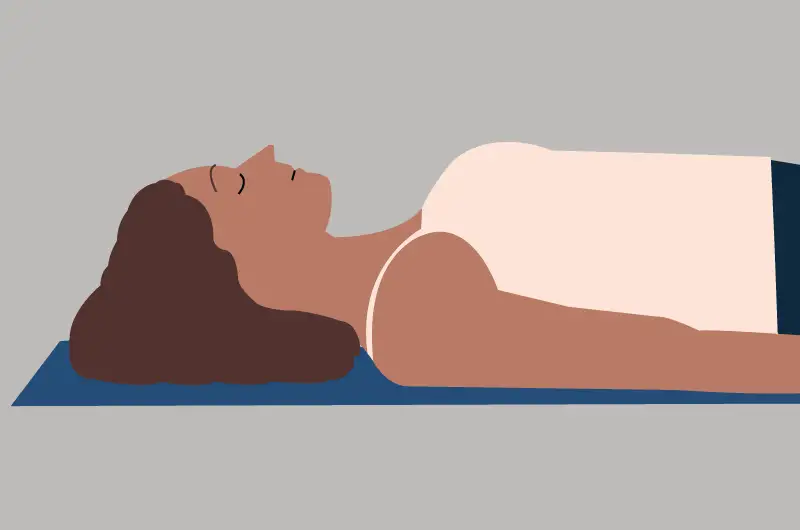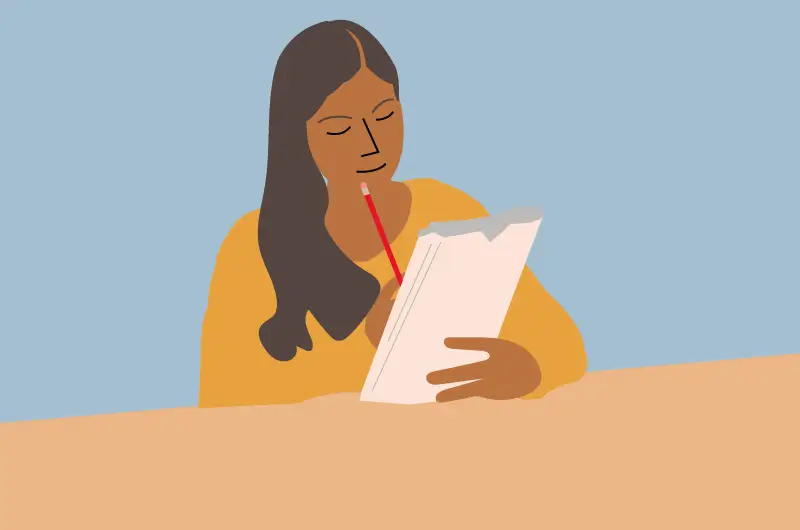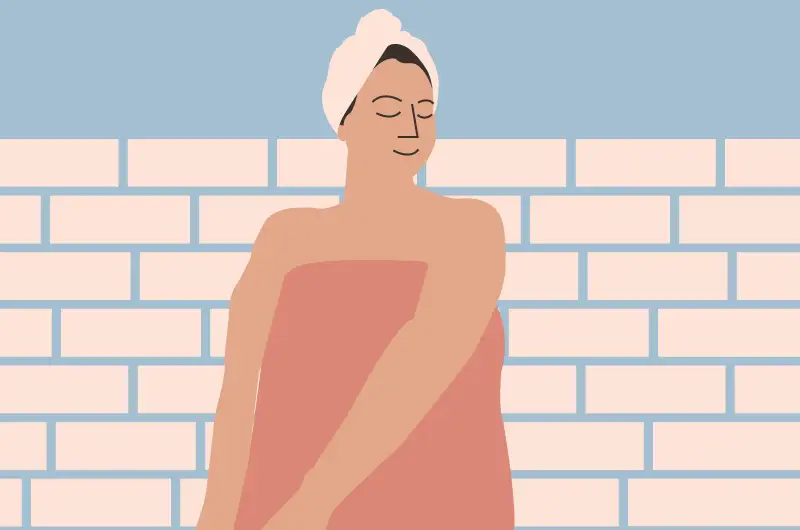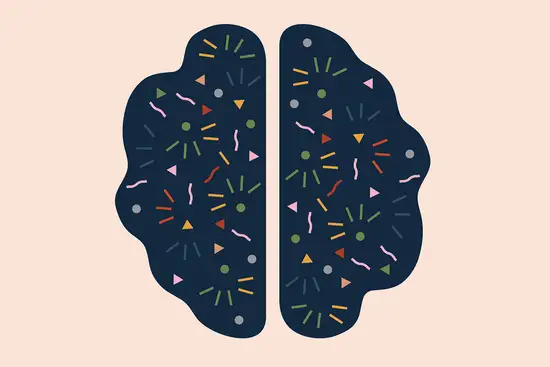Key points
Stress and sleep are closely linked. Good sleep can help reduce your levels of stress and experiencing stress can really affect your sleep. So we’ve compiled this article, full of tips on how to improve your sleep and minimise stress. We’ll cover:
- how stress and sleep are interlinked
- why good sleep can improve your mental health
- how to de-stress before bed
- ways to help you sleep better
- how we can help if stress is coming between you and good sleep.
Introduction
Stress can have a huge impact on your sleep and you’re much more likely to sleep badly when you’re going through a stressful period.
We all experience some level of stress as we go about our lives and often a good night’s sleep is all that’s needed to feel OK again. Sometimes, though, levels of stress can get on top of us, leaving us staring at the ceiling at 2am unable to sleep.
But what is it about stress that interferes with our sleep? We’re going to look at how stress and sleep are linked and how improving sleep can help to reduce anxiety, stress and low mood.
To help you get the best sleep possible, we’ve compiled a list of our seven best ways to de-stress before bed. We’re going to start off with a quick explanation of what we actually mean by the word ‘stress’ and how it links to sleep.
What exactly is stress and why does it interfere with your sleep?
We tend to think of stress as something negative but it’s a totally normal response to something that’s perceived as a threat.
When you experience something stressful, your brain sends a distress signal that triggers a sequence of chemical changes in the body. Stress hormones such as cortisol and adrenaline are released. These cause your heart rate and blood pressure to increase, more oxygen is provided to your muscles and your alertness increases.
These are all parts of the body’s fight-or-flight response and likely evolved to allow us to flee from danger. It’s easy to see how this stress response would have been very important for survival in our hunter-gatherer days — picture a scene where someone might have been confronted by a lion or chased by a wild boar!
In our modern day lives, the sources of stress may be different (fewer lions) but the body’s response remains the same. For example, it may be that you’re late for an appointment or have an important exam coming up.
Whatever the stress, once the body decides that the danger has passed (you got to the appointment/the exam is finished) then your heart rate and blood pressure go back to normal and your brain and body can relax again.
Problems can arise when the stress response doesn’t abate and the body ends up in a constant state of elevated stress. Your stress hormone levels remain high and your stress becomes chronic.
So how does this relate to our sleep? Good sleep has huge positive effects on both our physical and mental health.
Is stress stopping you from sleeping? Are you stressed about your lack of sleep?
We can help! Sleepstation’s programme uses Cognitive Behavioural Therapy for insomnia (CBTi), the gold-standard treatment for insomnia. CBTi helps to improve your sleep and it can also ease stress, anxiety and depression. See how Sleepstation can help you in just a few short clicks.
One of the ways our body copes with stress is through sleep. When we sleep, the brain processes thoughts and emotions that we have experienced throughout the day.
Essential maintenance is also carried out around the body to repair muscles, remove waste products and reset the general balance within the body ready for another day.
When we sleep well, levels of one of the key hormones in the stress response, cortisol, decrease in the body. During sleep, your body can clear excess cortisol and help you to wake up feeling relaxed and de-stressed.
However, in a person with high stress, we can have a bit of a chicken and egg scenario here. Cortisol can stop you from getting to sleep and, as we’ve just mentioned, good sleep is necessary to regulate cortisol levels.
So if you’ve already got raised cortisol levels, which then interfere with your sleep, the result is going to be raised cortisol levels when you wake. It seems like this would create an endless cycle of greater and greater stress, where stress interferes with sleep and poor sleep creates more stress.
Thankfully there are many simple ways to break this cycle, reduce your stress levels and get better sleep! We’ve summarised them into our top seven tips that can help you to get on top of your stress and sleeping like a baby. So let’s begin.
1. Exercise… but maybe not right before bed
Exercise is a great way to de-stress. In fact, daytime exercise increases your sleep need and has been linked to better sleep. For some people, strenuous exercise too close to bedtime can interfere with sleep but for others it might not affect their ability to fall asleep.
As long as you’re mindful of the type of exercise and what effect it has on you, you can still exercise in the evening without it interfering with your sleep. Just make sure you allow your body sufficient time to fully cool down after exercising and before you go to bed.
It’s better to do cardio or intense exercise earlier in the day although some light stretching or yoga before bed could help you wind down.
Getting at least 30 minutes of exercise every day will help you sleep and if you can get out in the sunshine that’s even better!
2. Try some mindfulness
Mindfulness and meditation have both become very popular and for good reason. Techniques involving these approaches allow you to relax and can help lower blood pressure and respiration rates, both of which are elevated by stress. Giving your brain some time to relax and rest is a great way to get you ready for bed.
We suggest the body scan, where you lay down and focus on each part of your body from the toes up. You can pay attention to how each part of the body feels or whether there’s any pain or sensation associated with that area. Once you finish you might be surprised how relaxed you feel.
If you find that you are waking up during the night and focusing on stressful thoughts, approaches that use mindfulness and meditation can be used as thought-blocking techniques to help you calm your thoughts during the night and allow you to get back to sleep.

3. Cut down on caffeine and alcohol
Having a glass of wine or beer after a long day may feel like it helps you unwind but just a small amount of alcohol can affect your sleep. A night cap may help you fall asleep when your head hits the pillow but the quality of sleep you get will likely be much worse.
Even though alcohol may shorten the time taken to fall asleep and can lead to deeper phases of sleep (at least initially), it may supress other important phases of sleep such as rapid eye movement sleep (REM).
Once the alcohol clears from the system there’s a ‘rebound’ from the suppressed phase of sleep leading to increased REM sleep as well as more awakenings and lighter sleep. This can lead to more bizarre and intense dreams. If you ever wake up feeling exhausted after a few too many drinks, this is probably why.
Caffeine can also interfere with a good night’s sleep. While a cup of coffee can leave you feeling more alert in the short term, it can elevate levels of cortisol and adrenaline in the body which can then interfere with your sleep.
Plus, if you’re already stressed, your levels of these hormones will be raised, so it’s often recommended to try to limit your caffeine intake when you’re feeling stress or anxiety. How your body responds to caffeine is highly individual — some people can drink coffee all day and will still sleep well.
Others can have a single cup of coffee and feel extra-alert for hours. As a rule of thumb, we’d recommend avoiding drinking caffeinated beverages in the hours before bed if you’re already finding it difficult to get to sleep.
4. Dim the lights and ditch the screens
Light can be a big disrupter when it comes to sleep. A key signal that tells the body to start preparing for sleep is the hormone, melatonin. This hormone is naturally released in response to light levels decreasing in the evening but, in our modern world, we illuminate our evenings with artificial lighting.
This can confuse the body and interfere with the normal production of melatonin. In the evening it can help to dim the lights and make the room darker as this will help your brain signal that it’s time for bed.
Exposure to blue light from TVs, tablets, smartphones and computers can also interfere with melatonin production, which brings us on to our next point.
Watching TV, bingeing on your favourite on-demand show or scrolling through social media feeds on your phone before bedtime are all proven to make you sleep worse. In addition to the sleep-hindering effects of staring at screens, these have all got the potential to provide your brain with too much stimulation at a time when you need to be winding down before bed.
We suggest you put the screens away and do something that doesn’t involve a screen. Read a good, old-fashioned book, try an adult colouring book or even dig out a crossword. Finding an activity that’s calming and keeps you away from staring at your phone is a great way to unwind after a long day.
Find a cosy corner, with dim lights and take an hour or two to read there. When you feel sleepy, you can put it down and head to bed.

5. Enjoy a nice bath or a hot shower
A bath or warm shower before bedtime is a great way to relax. It relieves tension in your muscles and it can help you sleep. A hot bath or shower will also warm you up and when you get out your temperature will drop.
Scientists have found that a drop in body temperature actually helps us drift off so if your bedroom’s cooler than your hot bath, it’ll make getting to sleep easier.1
6. Create a simple wind-down routine
We often create bedtime routines for babies and children but we don’t seem to realise that wind-down routines are actually extremely useful for children and adults alike.
Sleep loves routine so one way to prepare your body and mind for sleep each night is to keep to a roughly consistent routine every evening. You can incorporate some of the tips above into your wind-down routine and it can be as simple or elaborate as you wish.
The key is to try to follow it day in, day out.

7. Make your bedroom a haven of calm
To sleep well, you want your bedroom to be a place you look forward to going to when it’s time to sleep. There are many factors that go into creating the perfect bedroom setup, but ideally you want the space you sleep in to be somewhere you use only for sleep and sex.
If possible, your bed shouldn’t be where you go to watch TV, hang out or do work, because you want your brain to associate your bed with sleep. Try and keep electronics out of the bedroom and aim to make your bedroom as dark as possible, quiet and on the cooler side.
Still can’t sleep? We’re here to help!
If these simple tips aren’t helping you to de-stress and sleep at night then you might be experiencing a sleep disorder such as insomnia. Between 10% and 30% of the population have insomnia and it’s the most common sleep disorder.2
The good news is that insomnia’s really treatable and when you take steps to improve your sleep then you’re likely to see improvements in your mental health too.
Sleepstation’s six-week course helps you to take control of your sleep and change the bad habits that could be disrupting your sleep. Our programme has been proven to work better than face-to-face therapy and it’s drug-free — enabling you to overcome your problem without the need for sleeping pills.
We use a form of Cognitive Behavioural Therapy for insomnia (CBTi) that’s delivered entirely online, so you can follow our progamme from the comfort of your own home, while still having the help and support form our expert sleep coaches.
CBTi is the gold-standard treatment for insomnia and studies show that individuals who have received online CBTi show both reduction in insomnia as well as improvements in depression, anxiety and psychological wellbeing.3 4
So whether stress is stopping you sleeping or a lack of sleep is leaving you stressed, we’re here to help. Don’t let stress come between you and good sleep — take the first simple step now by completing our short sleep quiz and discovering how simple it can be to get back on the road to stress-free sleep.
Summary
- Stress can lead to difficulties getting to sleep and staying asleep.
- Good sleep can reduce your stress levels.
- Simple lifestyle changes can often help you to reduce stress levels and sleep better.
- If these simple sleep tips aren’t helping you to sleep, you may have insomnia.
- Insomnia and most sleep disorders respond really well to treatment.
References
- Gilbert SS, van den Heuvel CJ, Ferguson SA, et al. Thermoregulation as a sleep signalling system. Sleep Med Rev 2004; 8: 81–93. ↩︎
- Bhaskar S, Hemavathy D, Prasad S. Prevalence of chronic insomnia in adult patients and its correlation with medical comorbidities. J Family Med Prim Care 2016; 5: 780–784. ↩︎
- Luik AI, Bostock S, Chisnall L, et al. Treating depression and anxiety with digital cognitive behavioural therapy for insomnia: A real world NHS evaluation using standardized outcome measures. Behav Cogn Psychother 2017; 45: 91–96. ↩︎
- Cheng P, Kalmbach DA, Tallent G, et al. Depression prevention via digital cognitive behavioral therapy for insomnia: a randomized controlled trial. Sleep 2019; 42, 10: zsz150. ↩︎

